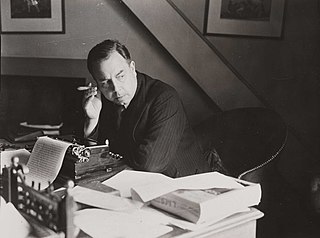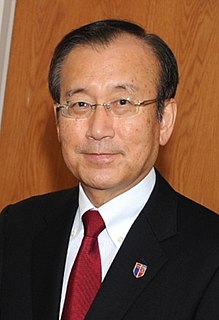A Quote by Elizabeth Forsythe Hailey
Time is a cruel thief to rob us of our former selves. We lose as much to life as we do to death.
Related Quotes
But the point is, now, at this moment, or any moment, we're only cross-sections of our real selves. What we really are is the whole stretch of ourselves, all our time, and when we come to the end of this life, all those selves, all our time, will be us - the real you, the real me. And then perhaps we'll find ourselves in another time, which is only another kind of dream.
It's tempting to think that decisions that are not life-and-death are therefore unimportant, and that the little compromises we make don't matter to our bottom line or our spiritual selves. How many of us are tempted, in business, to make a less-than-ethical decision? To appropriate someone else's idea or fudge some numbers? We have to remember that maintaining our ethical and spiritual selves is absolutely linked with achieving the degree of success we're working toward.
Storytelling is an act of cruelty. We are cruel to our characters because to be kind is to invite boredom, and boredom in storytelling is synonymous with big doomy death-shaped death. So: be cruel to your protagonist. Rob him of something. Something important. Something he needs. A weapon. An asset. A piece of knowledge. A loved one. A DELICIOUS PIE. Take it away! Force him to operate without it. Conflict reinvigorates stale stories. New conflict, or old conflict that has evolved and grown teeth.
AIDS has come upon us with cruel abandon. It has forced us to confront and deal with the frailty of our being and the reality of death. It has forced us into a realization that we must cherish every moment of the glorious experience of this thing we call life. We are learning to value our own lives of our loved ones as if any moment may be the last.
Jazz music is America's past and its potential, summed up and sanctified and accessible to anybody who learns to listen to, feel, and understand it. The music can connect us to our earlier selves and to our better selves-to-come. It can remind us of where we fit on the time line of human achievement, an ultimate value of art.
America's Facebook generation shows a submission to standardization that I haven't seen before. The American adventure has always been about people forgetting their former selves - Samuel Clemens became Mark Twain, Jack Kerouac went on the road. If they had a Facebook page, they wouldn't have been able to forget their former selves.
We cannot and must not allow ourselves to have the message of Hiroshima and Nagasaki fade completely from our minds, and we cannot allow our vision or ideals to fade, either. For if we do, we have but one course left for us. And that flash of light will not only rob us of our vision, but it will rob us of our lives, our progeny, and our very existence.

































